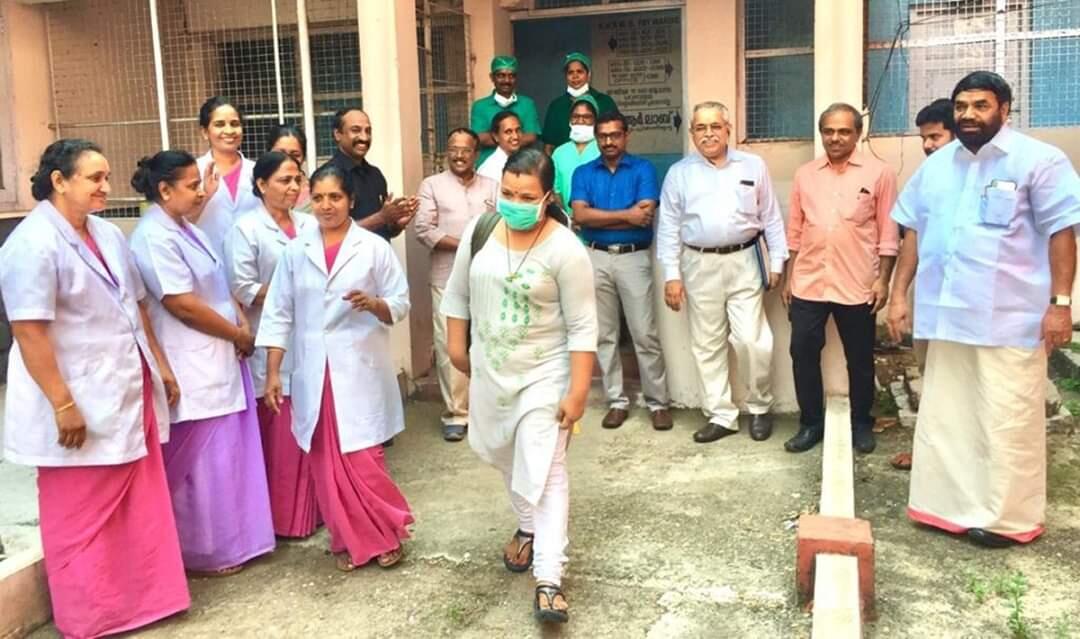BELAGAVI / KOTTAYAM / THIRUVANTHAPURAM, INDIA - When Sugandha Sadappa met her three-year-old daughter after 21 days, she couldn’t hold back her tears.
‘I had been on duty for seven straight days and then in quarantine for the next 14,’ Sugandha said, ‘It was very difficult for my family; my daughter kept asking for me and my husband didn’t know what to say to her.’
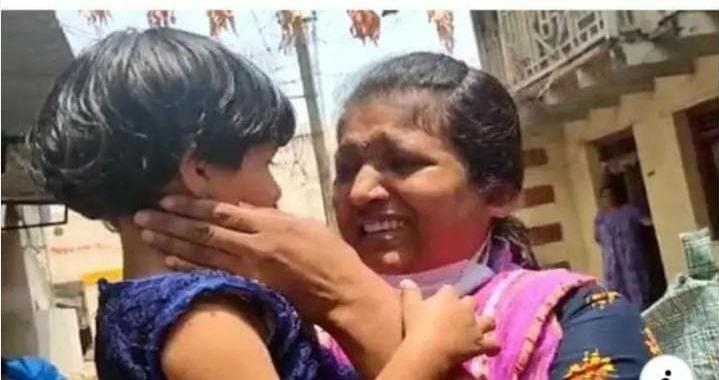
Sugandha Sadappa and her daughter.
Sugandha, trained in general nursing and midwifery, has been working in the COVID-19 Ward at the Belagavi Institute of Medical Science in Karnataka state. She is one of the several thousands of nurse- midwives across India who have been pulled into providing care for people infected with COVID-19 in hospitals across the country.
For a week, Sugandha took care of four patients who were in that hospital ward, making sure they got the medication they were prescribed, checking their vital signs several times a day and assessing their symptoms.
‘As a nurse I had to counsel them from time to time,’ says Sugandha. ‘Along with that, I had to explain the importance of hand hygiene and how they must avoid contact with other people. As a caregiver I had to be careful as well, making sure I disposed of my PPE kit properly.’
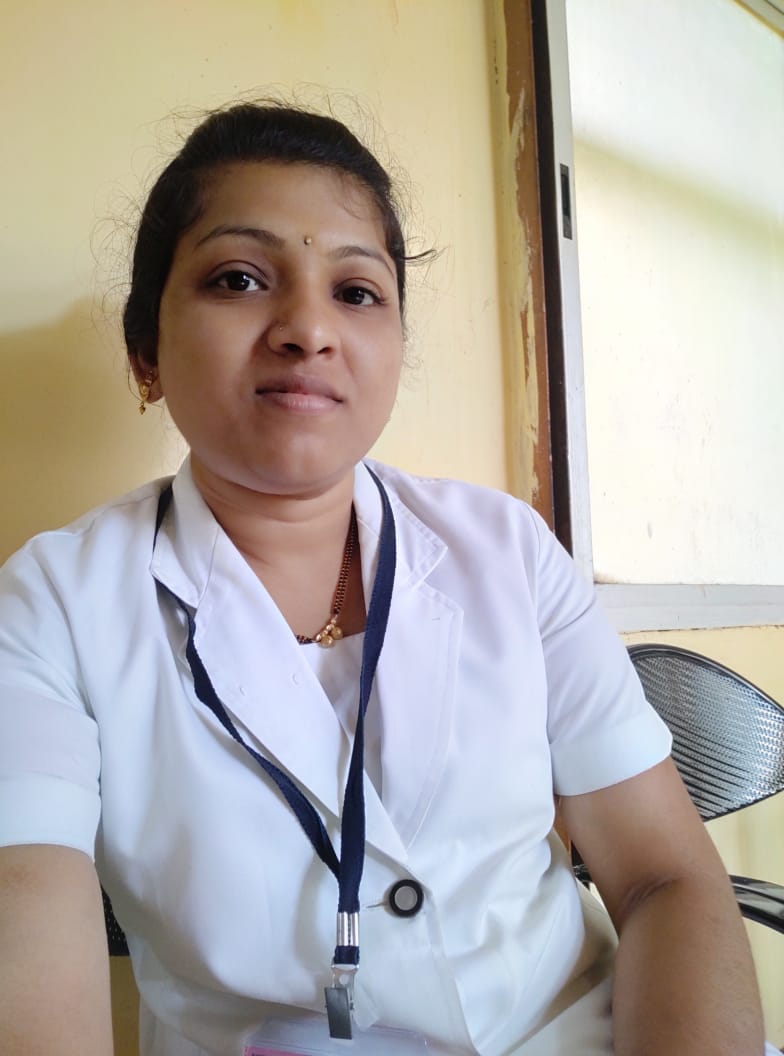
Sugandha Sadappa at work
‘India has around 4,500 nursing institutions offering different types of nursing programmes such as Auxiliary Nurse Midwife trainings, diplomas, bachelor and post-graduate programmes with about 323,000 people getting trained every year. There are about 2.1 million nurses and midwives in India. Today, these nurses are on the frontlines providing health care services in this COVID 19 emergency,’ explains Dr Dileep Kumar, President of the Indian Nursing Council.
With larger hospitals are busy providing care to COVID-19 patients and with travel restrictions in place, smaller hospitals are continuing to carry out essential maternal and sexual and reproductive health services for non-COVID patients. The role of nurses in such health facilities is critical. Well-trained nurse-midwives can prevent large numbers of maternal deaths.
Realising the need for nurse-midwives to provide basic maternal and SRH care right now, UNFPA in partnership with the Indian Nursing Council is conducting virtual training sessions on maternal care, family planning and basic emergency obstetric care for the faculty of nursing schools, as well as for nursing students.
Since the start of the pandemic, healthcare workers have been at the forefront in the fight against COVID-19, putting their duty ahead of themselves.

Reshma Mohandas contracted COVID-19 but recovered and is now back at work
Reshma Mohandas, a nurse who was assigned to the operation theatre at the Government Medical College in Kottayam, Kerala state, asked to be placed at the COVID-19 ward at the hospital. For 11 consecutive days, she worked tirelessly at the intensive care unit and in the isolation ward, looking after elderly patients.
‘The patients I was assigned were above 85 years. I tried to give them hope…I believed that would bring back some life in them,’ says Reshma. ‘Sometimes it was challenging. There were times when they were reluctant to take food and medicine at the right time. But I didn’t give up. I considered it my duty to take care of the patients who would have otherwise had nobody to take care of them.’
A few days later, Reshma herself began feeling unwell.
‘My body started showing some symptoms like sneezing, running nose, throat pain, headache and tiredness. I consulted the duty doctor in the fever clinic in our hospital and i was advised to move to the isolation ward after taking the throat swab,’ recalls Reshma. ‘I prepared myself for what was about to happen. The next day I was diagnosed as COVID-19 positive.’
After being treated for 10 days in the isolation ward and a further period of quarantine for 14 days, Reshma slowly recovered.
‘Always wear a mask, use sanitizer and wash hands frequently because prevention is better than cure,’ adds Reshma, who is back at work.
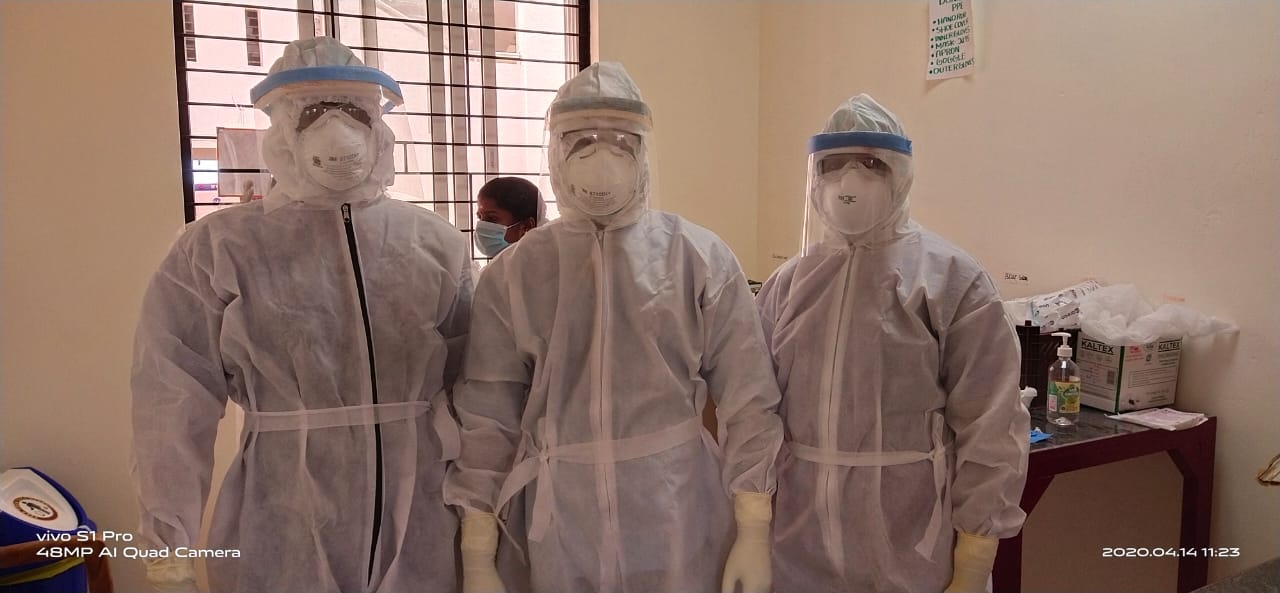
Jennings Joseph with colleagues
Jennings Joseph and Legha Verghese are both nurses at the Medical College Hospital in Thiruvanthapuram, Kerala. Jennings, a male nurse looked after COVID-19 patients at the medical college in Thiruvanthapuram and was also part of the COVID-19 medical team at Kasargod New Medical College, located in one of the most severely affected areas in Kerala.
‘In the beginning my neighbours stayed away from me, when I came back from Kasargod,’ says Jennings, ‘Even after I finished my quarantine for 14 days, they would avoid me.’
But Jennings has learnt to take it in his stride.
‘My family and friends were very supportive, so it was all right,’ he says.
His wife, Legha, also a nurse, was not assigned COVID-19 duties – as per government regulations for couples who are both nurses. She admits these aren’t easy times.
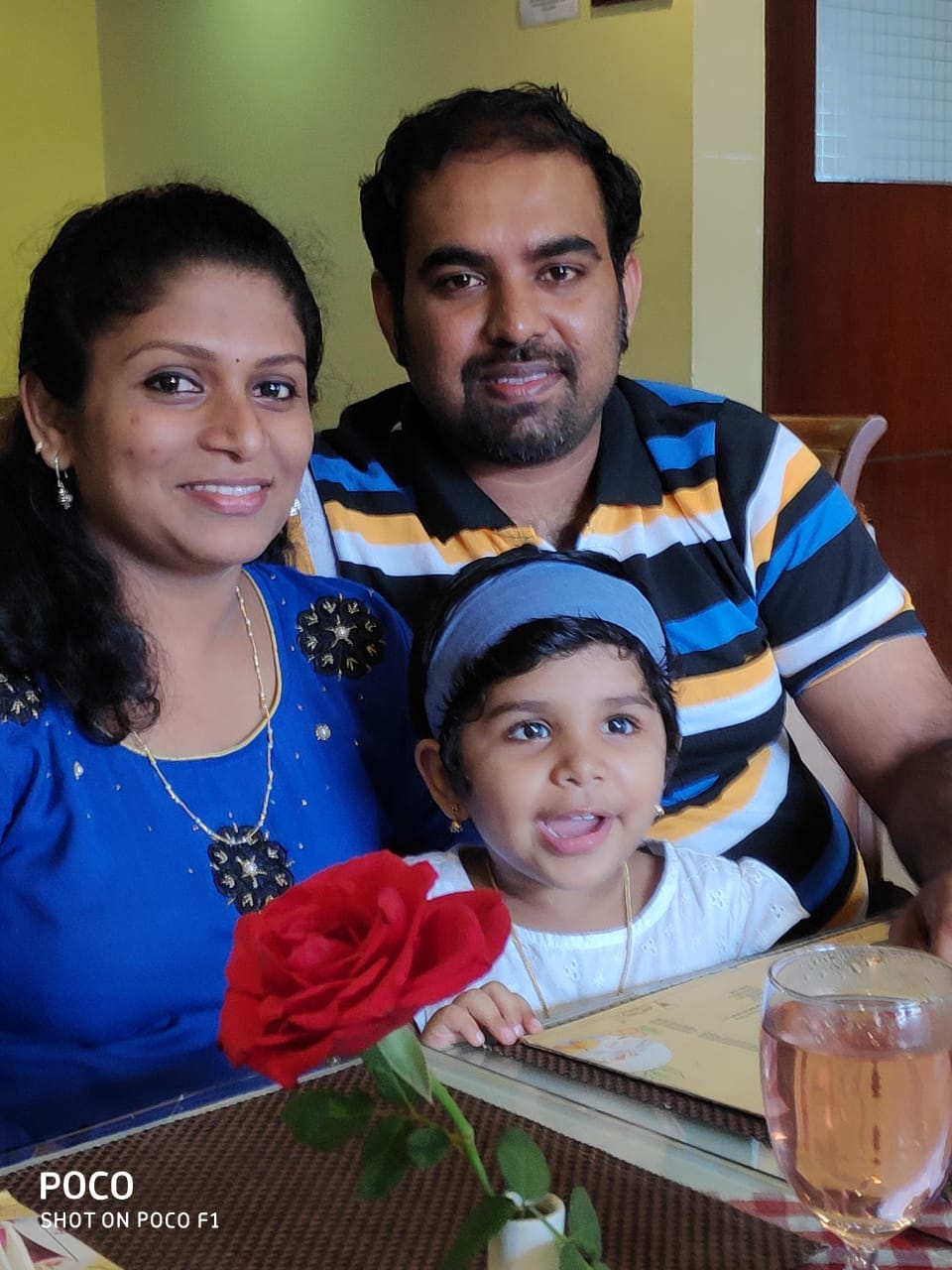
Jennings, Legha and daughter Annet at home
‘It has been difficult for us as a family with Jennings being away from us,’ Legha says, ‘I have spent many nights worrying whether he is safe or not.’
After a pause, she adds, ‘But as a nurse myself, I know our service to our patients comes first. When all this is over I can say, my husband played a part in fighting this battle against coronavirus.’

